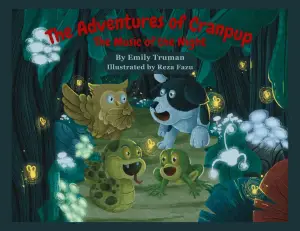I recently dove into Jennie Allen’s best-selling book, Get Out of Your Head: Stopping the Spiral of Toxic Thoughts, and I must say, it was a compelling read that deeply resonated with my own experiences. As someone who often grapples with negative thinking patterns, I was intrigued by the promise of learning practical strategies to regain control of my thoughts and emotions. The book had already gained significant acclaim, being a New York Times bestseller and acknowledged as a must-have resource in the Christian community, which placed my expectations quite high.
From the outset, Allen’s candidness drew me in. She shares her own story of struggling with toxic thoughts, making the text feel personal and relatable. I found her narrative style engaging, and her authenticity throughout the book made the insights she offered even more impactful. Allen suggests that we possess a God-given power to shift harmful thought patterns, which felt like a guiding light as I navigated through her teachings. I appreciated the practical tools she provided, particularly her emphasis on gratitude and self-awareness as ways to recalibrate our minds.
Many readers echo my sentiments about the book being an excellent resource for renewal, as noted by a reviewer who mentioned that Allen provides "sound, biblical, practical advice on how to out mental battles." However, I also noticed that there are some mixed feelings regarding the level of biblical content. While I found the scripture references meaningful and uplifting, I can understand that others might feel it leans a bit heavily into religious teachings. If you’re looking for a more secular approach, this might be a drawback for you.
One of the most significant strengths of this book is its ability to empower. Allen effectively reassures us that we are not alone in our struggles with self-doubt and negative thoughts. I was particularly struck by her ability to transform complex psychological concepts into digestible, actionable steps. This is echoed in another review: "So much good in this book. I’m not sure I’ve ever highlighted a book so much." I too found myself underlining key passages and taking notes, eager to revisit Allen’s insights.
However, I can’t overlook a couple of areas that might not meet everyone’s expectations. Some readers found that the book felt a bit repetitive at times, reiterating certain concepts without significantly expanding on them. Additionally, while the workbook companion Allen suggests is beneficial, not everyone may find it necessary to fully engage with the book’s message. Personally, I felt it was an extension that could enhance the experience but didn’t find it essential for understanding the main text.
In summary, Get Out of Your Head exceeded my expectations on several fronts. The candid, engaging writing style and accessibility of profound concepts made for a transformative reading experience. The empowerment built from Allen’s words pushed me to confront my inner critic, something that many readers, like myself, greatly appreciated. However, if you lean away from religious texts in self-help books, this might not be the right fit for you.
In conclusion, I wholeheartedly recommend Get Out of Your Head to anyone looking to break free from negative thoughts and cultivate a more positive mindset. This is a life-changing journey that I believe many will find beneficial. Whether for personal growth or as a thoughtful gift, this book encourages us to exercise our power over our thoughts and reinforces the message that freedom starts in our minds. I know I’ll be returning to it, highlighting and listening for its wisdom along the way.








